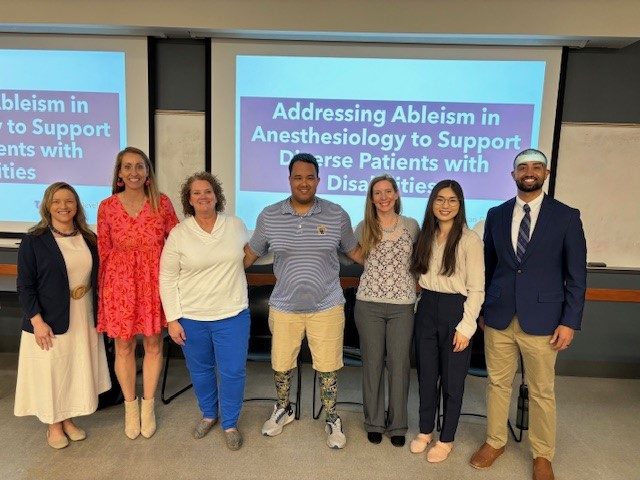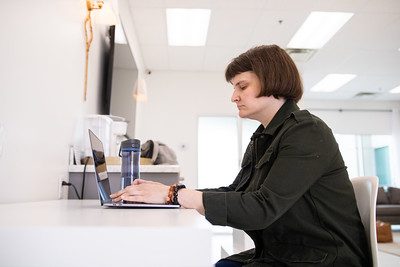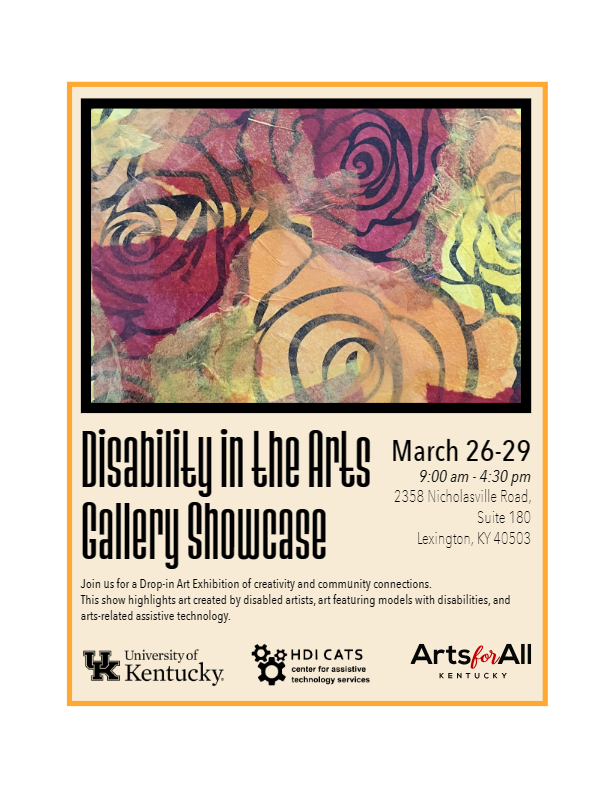Josiah Fowler, a Rehabilitation Technologist for the Office of Vocational Rehabilitation, thinks of his job like a puzzle. Luckily, he’s good at puzzles.
Though the title of Rehabilitation Technologist might suggest cutting edge advancements, sometimes his ultimate solution is no more advanced than a simple color alteration. In one case, which the OVR specifically cited when it named Fowler the Rehabilitation Technologist of the Year, a person with low vision was working at a sandwich shop and could not see the instructions on how to put together certain orders.
“I downloaded Photoshop on my personal computer and created a large contrasted version of those sandwich cards and then had them printed out and laminated, and I clipped and together with a ring and delivered them to the person,” Fowler said. “Then they were able to flip through the laminated sandwich recipes and see them. So I just had to create that from scratch for them.”
In his work, Fowler has to do a lot of that kind of creative problem solving.
“We have to really be able to put together the puzzle of what someone needs for their job and how that fits with the puzzle of their disability related functional limitations,” he said. “I’d say a very large part of my job is actually just researching or testing out or experiment with new products to try with people.”
And Fowler loves the creative challenge of solving these puzzles – and the rewards that come with his insights.
“It’s always great to just see the happy smiles on people’s faces once they’re able to do something they were struggling to do before,” he said.
Though Fowler has blossomed in the role of a Rehabilitation Technologist, it’s not where his background was. He actually studied history at Western Kentucky University. But he does have a connection to disability services.
“I’ve always actually been relatively, passionate and interested in disability services. I’ve grown up with people with disabilities. I’ve worked with people with disabilities, gone to school with people with disabilities. I’ve always had a drive to help give people what they need to achieve what they want to do,” he said. “I view helping people who need it the most as the greatest calling that we can do in life…It gives me a great reason to wake up with a smile on my face and be happy to go to work every day.”
As proud as Fowler is of his achievement, he made a note to thank his colleagues at the OVR.
“I think everyone on the team deserves an award,” he said. “I couldn’t do what I do without the other Rehab Techs on the AT team. I couldn’t do what I do without the great Assistants we have and our Branch Manager. Together we all help guide each other through the complex cases we often find ourselves working on.”




